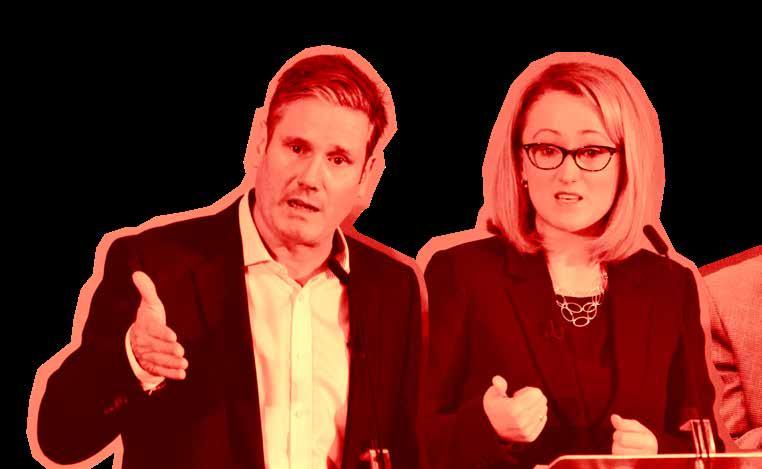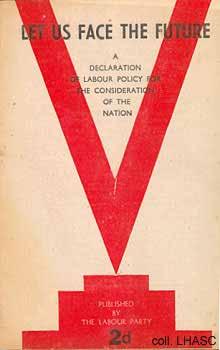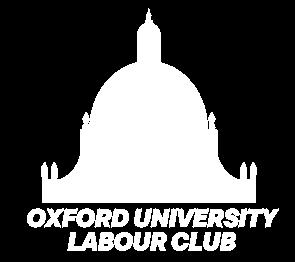
8 minute read
Danial Hussain The case for progressive patriotism
In a Zoom call with voters from Bury in April of last year, this was Keir Starmer’s plea - that Patriotism and Labour were not mutually exclusive but rather intrinsically connected. To some people this may seem like a basic expectation, yet for some time now Labour’s relationship with patriotism has been an awkward endeavour at best.
Nevertheless, in recent years this relationship has seemed more distant than ever. After the 2019 election, Lord Ashcroft’s polling showed a lack of patriotism was a major factor in Labour’s defeat. It demonstrated that the ex-leader, Jeremy Corbyn, was primarily at fault due to a perceived lack of patriotism. From refusing to sing the national anthem at a memorial service to reported meetings with terrorist groups, Corbyn failed to connect with ‘red wall’ voters - a group who largely identified themselves as proud of where they come from. Rightly or wrongly, most voters are patriotic; a YouGov poll found that 61% of voters see themselves as patriotic, compared to 32% who don’t. This visceral attachment to one's heritage, as frowned upon as it may be to some, is integral to many people's identities. We, as a party, have failed to incorporate this innate admiration into our message, or worst of all, we have actively ignored its importance to our membership. In order to lead the country, nevermind the Labour Party, we must make it clear that we like the country we want to govern.
Advertisement
This inactivity over the patriotism problem will evidently prove fatal. If we do not define our patriotism, our progressive patriotism, the Tories will define it for us. In the same poll, 41% of people considered Labour as unpatriotic. By contrast, 55% consider the Tories to be patriotic. As a result we are already seen as inferior on areas such as foreign policy and national security, for we are not strong enough to protect our country. Something must change.
What I am suggesting is not a complete rewrite of Labour’s ideology, but rather a direct focus on what makes Labour the party of the people. We must offer a patriotism that is beyond the Conservatives' reach, and one that can connect us to what we have lost. A major survey from the BBC revealed, perhaps not surprisingly, that young people are far less likely to feel proud to be English than older generations. My own political consciousness has been filled with hegemonic Tory rule, and overwhelmed with serial incompetence, austerity and the B word. How could we possibly be proud of that? Labour has an opportunity to define a patriotism fit for the 21st century, one that combines the history of our party with a relentless vision of the future.
Yet in unequivocally affirming the importance of patriotism we must be wary of the nationalistic tendencies that can arise. Playing nationwide identity politics is a tool of the right, one that stereotypes people and fails to conceptualise the complexities of our world - that our race, gender or sexuality does not define us as people. A push towards patriotism could also alienate Labour’s
Danial Hussein, PPE at Lady Margaret Hall The case for progressive patriotism
Keir Starmer, Rebecca Long-Bailey, and Jeremy Corbyn. broad coalition of voters, particularly within the BAME community. For me, it seems like a difficult balance that Labour has to strike: to equally reclaim its old roots whilst protecting its new ones. Labour was built on trade unions - the industrious working class who had an innate patriotic element in their consciousness. Now, Labour has shifted to a different membership consisting of the metropolitan middle class and students. The tensions have been clear for some time now; the traditional membership does not feel represented anymore, but rather looked down upon and taken for granted. Their desire to be proud of their country is unimportant to the new coalition bloc, and therefore lower on the list of priorities. If Labour wants to win in 2024, it needs to unite these two groups together. Patriotism, despite its flaws, is the only way to do it.
So, what should progressive patriotism look like? First we must look back to what has been done. Long-Bailey, who coined ‘progressive patriotism’ during the leadership election, was ultimately too vague. She recounted how Lancashire mill workers supported Lincoln’s embargo on slave-picked cotton during the American Civil War, as a template for what must be done. Yet, this internationalist element, although part of the solution, is limited. It ignores the national community that must be derived in order to win elections. By trying to stand for everything but with undefined references to “dignity” and “pride”, Long-Bailey in reality stood for nothing.
Whilst Corbyn ignored the patriotism problem, Starmer has arguably pandered to conservative patriotism. Patriotism cannot merely be “use of the flag, veterans, dressing smartly”, as suggested in Labour’s leaked plan to win back voters - it is so transparently insincere. According to the report, voters felt Starmer was “sitting on the fence”, and they did not know what Labour stands for. Instead, Labour needs to build a genuine patriotic belief system, and that will take time, but it must be an alternative to nationalist nostalgia.
How then should the
Left adopt patriotism? How can we appeal to voters who are proud to be British whilst simulta-
neously retaining those who disagree? Patriotism can be the uniting element between Labour’s past and future, highlighting how both groups have more in common than they might think. The Covid-19 pandemic has highlighted this. What makes me proud of this country is not the symbolic gestures of flags or jingoistic language of how we are superior. It is the NHS staff, teachers and lorry drivers - in other words the key workers - who kept our country running in the midst of political neglect. We have institutions which ensure that everyone has access to an education and quality healthcare. What connects people are the values of fairness and equality of opportunity which the institutions promote.
Patriotic conservatism is inherently stable as it is squarely focused on the short term and never the broad change the country needs. As we get out of the pandemic and face up to the full extent of damage done to our public services by austerity, we need a critical edge. Labour’s patriotism must not be blind, it must be honest. We must not be merely proud, for that is overly defensive and thus the opposite of what Labour ought to stand for.
Labour is the party of reform, of pioneering change - a trait that is unequivocally British. We must be critical; our institutions are great, but they have suffered under years of Tory rule with the cutting of public services and overstretching the incredible people who hold our country together. We must stand up for all that is good in this country, but simultaneously argue that it could, and should, be better. That second part is what separates Labour from the Conservatives, and it is incumbent upon the party leadership to remember that. We must show not just that the country needs to change, but that we believe it can change. To be proud whilst still realising it has its faults. That is what Labour is. Our 1945 election win was encapsulated by the manifesto “Let us face the future”. We can draw on the fact that throughout our history we have reformed Britain by creating the welfare state and the institutions that so many are proud of today. These institutions make Britain what it is, and Labour formed them.
But we have to be willing to act. We urgently need to challenge the view that the current government is patriotic; arguing that the proposed 1% pay rise to NHS workers (a real cut in wages) is the opposite of patriotism. It is an insult. Labour has to be more self-assured and not uncritically accept the right’s attempts to predetermine the political playbook. We must show that we are the real patriots, that Britain’s patriotism is based on tangible reform rather than just symbolism, and that throughout history Labour has been the party to deliver on it. Labour's 1945 Manifesto


PHOTO CrEdiTS
Page 8-9: Stills from the Weakest Link clip with gradient map filter applied, with clip courtesy of @chibiandchill on Twitter [permalink]
Page 10: Top: Still from Death of a Salesman /Photobynatcshow / CC BY 2.0; Bottom: Arthur Miller / photo viaU.S. State Department, Public domain, via Wikimedia Commons
Page 13: Both photos viaBlackwells
Page 14: Thompson speaking at Glastonbury in 1986 / photo via Tribune Magazine
Page 16: Shelley, painting by Joseph Severn, 1845 / photovia Wikimedia Commons
Page 17: Starmer at leadership hustings, 2020 / Rwendland, CC BY-SA 4.0, photo via Wikimedia Commons
Page 21: Howard Adams / photovia M. Gouldhawke
Page 22: Left: Both photos (1, 2) bykris krüg, CC BY-NC-SA 2.0
Page 25: Top: Nehru / photo via Behrens, Herbert / Anefo, CC BY-SA 3.0 NL, via Wikimedia Commons; Bottom: Flag ceremony photo via DailyPakistan
Page 26: Indira Gandhi / photo via Finnish Heritage Agency, CC BY 4.0, via Wikimedia Commons
Page 27: Narendra Modi / photo, CC BY 3.0, via Wikimedia Commons
Page 28-29: Boris Johnson and Narendra Modi / photo via Prime Minister's Office, GODL-India,via Wikimedia Commons
Page 31: Clockwise from top left. [1] Photo via Wikimedia Commons, public domain. [2] Photovia @BorisJohnson on Twitter [3] Photovia The British Army [4]Photovia @UK51NGH on Twitter
Page 33: March to Delhi/ Photo by Randeep Maddoke / CC0 1.0 Page 36 and 37: Modified vector file, fromrightmeow2onVecteezy
Page 43: From top to bottom: [1]Margate, Kent; [2]Burslem, Stoke on Trent; [3]Croydon, London;[4]Wolverhampton city centre
Page 53: PhotobyPhil Roeder, CC BY 2.0
Page 56-57: Rebecca Long-Bailey / photo by Rwendland, CC BY-SA 4.0, via Wikimedia Commons; Keir Starmer / photo by Rwendland, CC BY-SA 4.0, via Wikimedia Commons; Jeremy Corbyn / photo via Rwendland,CC BY-SA 4.0, via Wikimedia Commons (all three modified with gradient map filter); Labour's 1945 Manifesto / photo via Social History Portal













